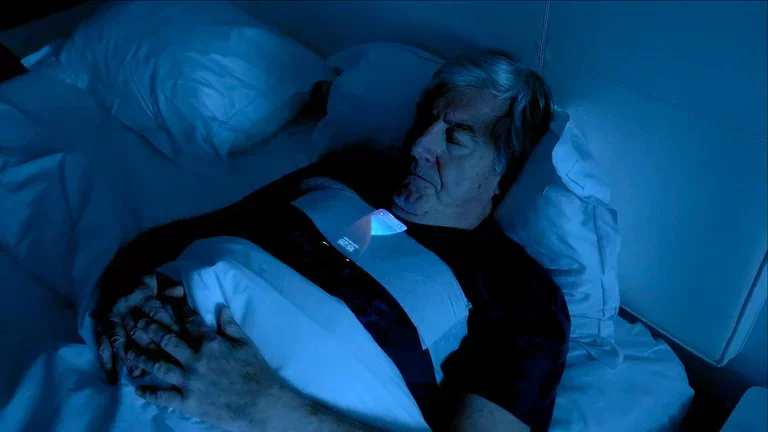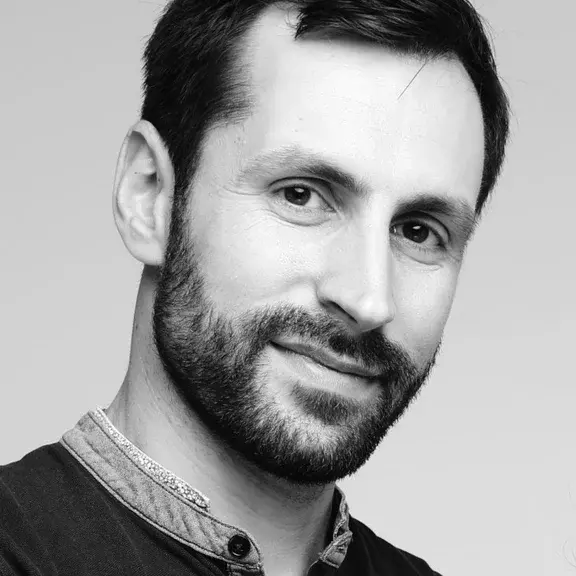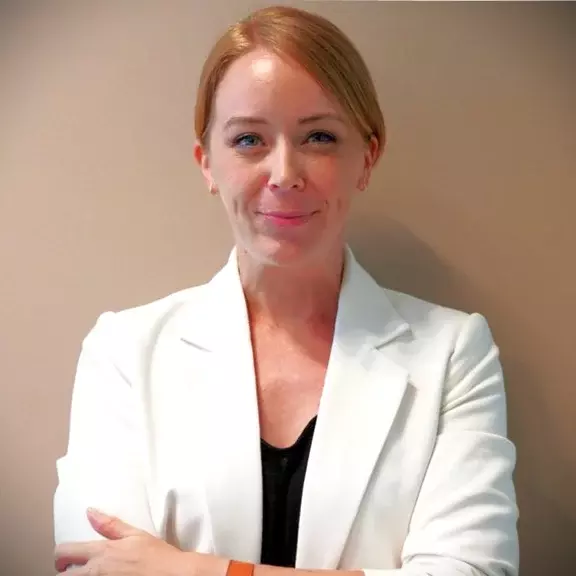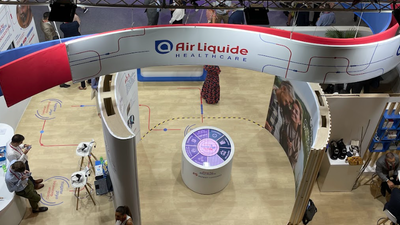Sleep apnea: an innovative partnership to improve screening
Published on May 13, 2024
4 minutes

A discussion between Séverin Benizri, co-founder and CEO of the start-up Apneal, and Marie Lambert, Director of the Sleep Apnea program at Air Liquide Healthcare.
What is Apneal's ambition?
Séverin Benizri: Created in 2021, Apneal aims to make sleep apnea diagnosis easier, by making screening more accessible and more effective. Why? The first reason is that only 20% of people living with this disease are diagnosed worldwide1. The second reason is the need to improve the accuracy of screening, and thus reduce the number of negative diagnosis tests! Our aim is therefore to develop a system to help diagnose sleep apnea using a simple smartphone to analyze respiratory and cardiac movements and thus detect the risk of sleep apnea. The solution is currently being developed, with the aim of applying for CE marking as a medical device in the near future.
Why a partnership between Apneal and Air Liquide Healthcare on sleep apnea screening?
Marie Lambert: Nearly a billion people in the world2 are affected by sleep apnea, and we also know that many of them are living with another chronic disease. In some countries, waiting times for diagnosis tests are very long. Without treatment, sleep apnea can lead to complications and worsen the health condition of these people. Early diagnosis of sleep apnea can be seen as a public health issue, particularly for people living with other chronic diseases. Air Liquide Healthcare supports the Apneal project to improve the diagnosis pathway for sleep apnea.
What are your expectations with the Apneal solution to help diagnose sleep apnea?
SB: Our system has been developed with the aim of becoming a simple and accurate routine examination, thanks to the sensors already embedded in the smartphone. We are continuing to develop the algorithms to increase their reliability with new clinical studies.
We would like the sleep apnea screening solution to be prescribed by a healthcare professional. Once the test has been carried out, an examination report including the level of severity of the disease would be sent to the doctor, speeding up the patient's care pathway. The diagnosis of sleep apnea would be confirmed at a later stage with the compulsory reference examinations.
What is the role of Air Liquide Healthcare?
ML: As a member of EIT Health, we have supported Apneal by being a leading partner in the consortium. EIT Health is a European organization whose mission is to help companies overcome the barriers to innovation in healthcare to deliver solutions that improve patients' quality of life and help create more sustainable healthcare systems. Our role with Apneal was exciting and wide-ranging. We conducted interviews with European healthcare funders and doctors to test the reception of the solution under development, we helped to identify the other partners in the consortium, and together we prepared the presentation of the project to the EIT Health Jury to win their financial support. The adventure will continue in 2024, when we will participate together in major medical congresses. Air Liquide Healthcare's role is to support this innovation and accompany its development so that it can be brought to market quickly.
What kind of public health issue could your solution help to address?
SB: We want our solution to enable people with a high probability of having sleep apnea to be treated more quickly. In short, our diagnostic aid solution aims to reduce the time it takes to diagnose high-priority individuals, thereby enabling sleep apnea to be treated more quickly.
ML: This last point is absolutely fundamental for us. Air Liquide Healthcare's approach to value in healthcare aims to improve the benefits for the patient, at the best cost for the healthcare system. By reducing the time to diagnosis and facilitating the initiation of treatment for sleep apnea, we believe that this solution can improve patients' quality of life and avoid health complications related to this disease.
This solution could make it easier and quicker, patients who require a diagnostic examination (polygraph or polysomnography). Patients with a high risk score would receive priority care from sleep specialists.
From an economic point of view, treatment of people suffering from sleep apnea should also make it possible to avoid the complications related to sleep apnea and the associated costs. The ambition of this partnership with Apneal is to offer value-based diagnosis assistance for the benefit of patients, healthcare professionals and the healthcare system as a whole.



